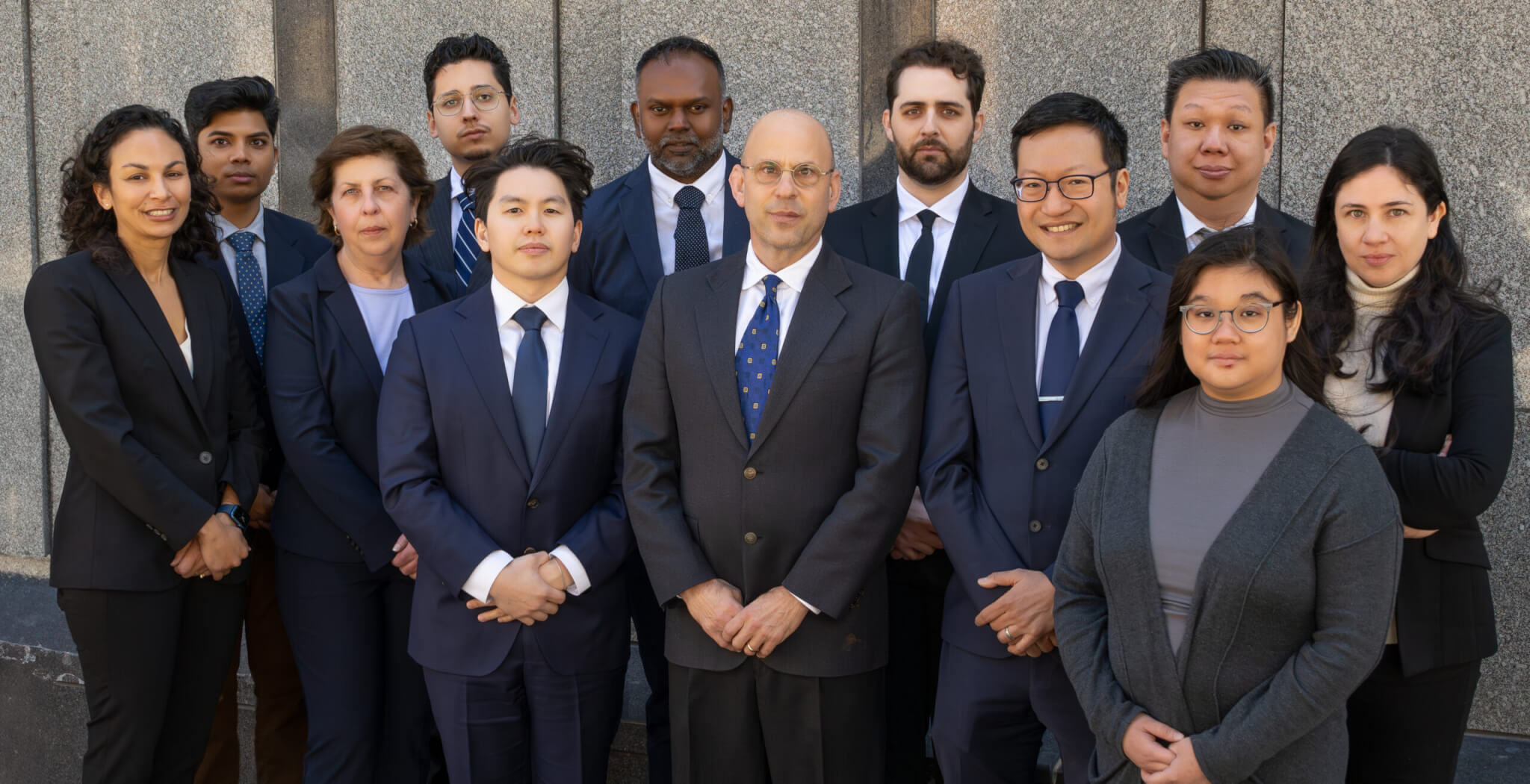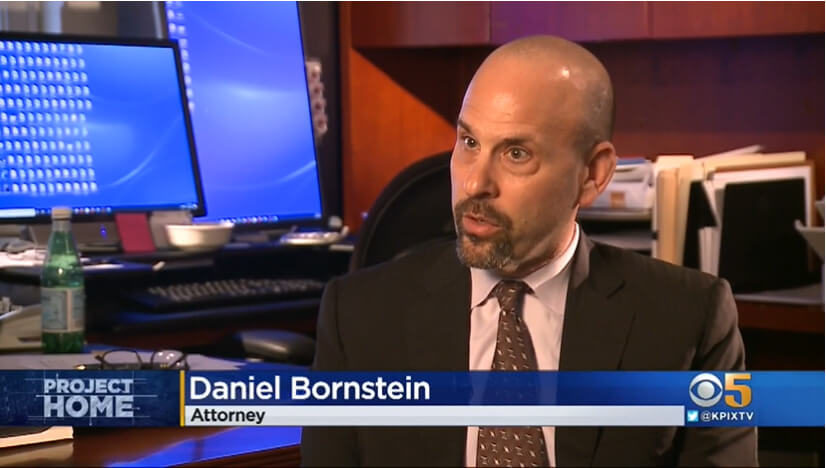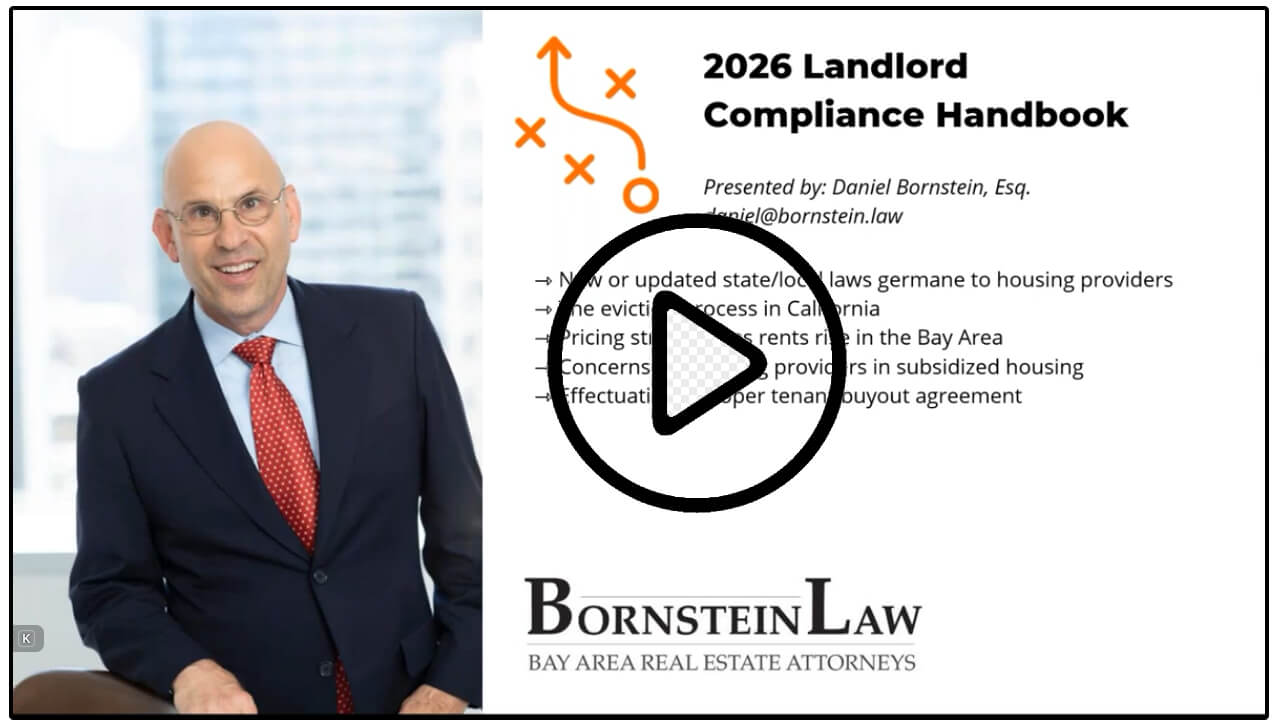
The allies of landlords, property managers, and real estate professionals.
The law has become very specialized and nuanced. When shopping for an attorney, a fair question to ask is, “Do you practice landlord-tenant law on a daily basis?”
Managing rental relationships is all we do, and we do it well.
Full-service law firm leading the charge of protecting the rights of property owners and resolving thorny landlord-tenant disputes
As regulatory scrutiny intensifies and notice requirements become increasingly technical, the margin for error continues to shrink. A misstep in compliance, a tenant in default, or a poorly handled dispute can quickly escalate into costly litigation or prolonged vacancy. For today’s housing providers, experienced legal counsel is not a luxury — it is a critical component of protecting long-term asset value.
When challenges arise, landlords turn to Bornstein Law for decisive, strategic representation. With offices in San Francisco and Oakland, our team delivers proactive guidance, meticulous compliance support, and firm advocacy designed to safeguard your investment and minimize risk.
Our valued clients, referral partners, and colleagues say it best.
For over three decades, Bornstein Law has helped rental property owners and their agents power through their challenges, and we've met many friends along the way.
NEWSROOM
We raise the voice of rental housing providers
![]()
Although the political rhetoric nowadays falls squarely on the side of tenants, Bornstein Law offers a fresh perspective through the lens of underrepresented property owners. Numerous media outlets have called upon us to articulate the unique challenges of landlords.
Actionable updates and insights to prepare for the year ahead
What’s changing in 2026? Watch our newest educational video to learn how upcoming laws will impact housing providers, property managers, and real estate professionals.
On February 19, our founding attorney, Daniel Bornstein, hosted an in-depth webinar that broke down the new laws and landlording obligations ushered in by the new year.

The Compliance Reset: New Year's Resolutions for California Housing Providers
Updating leases, addenda, and disclosures to reflect changes in the law »
Proactively addressing habitability issues and responding to repair requests as they arise »
When raising rents, doing so properly and legally to avoid residual liability »
Reviewing fees charged to tenants to ensure they are transparent and legal »
Must-reads for law-aware landlords and property managers to stay compliant with new laws

Housing Providers Face Rising Habitability Risks in 2026 ›
Smart Rental Pricing in a New Regulatory Regime ›
Looking in the Rear View Mirror and Anticipating Minefields for Housing Providers in 2026 ›
Daniel's end-of-year messageas we close the curtain on 2025 and prepare for a new legal landscape ›
Articles for astute property owners and real estate practitioners
We are unaware of any other law firm so prolific in disseminating articles on topics germane to landlords and the professionals who serve them.

Miss a beat? View the archive of our regular email broadcasts and subscribe to stay in the know.
Peruse our latest email updates and join our growing community of subscribers. In California’s highly regulated, tenant-protective environment, housing providers and real estate professionals are well-advised to stay informed about the legal developments that affect their business.
View archives of email broadcasts →
Get the latest legal happenings and insights delivered to your inbox →
![]()
AT A GLANCE
Practice Areas


Our mission is to help housing providers, property managers, and real estate professionals think smartly and strategically about investment properties from an economic standpoint, cauterize risk in an ever-complicated regulatory regime, and provide informed advice when landlord-tenant disputes arise.
Seeing past the horizon of the dispute, our goal is never to elongate the matter but to resolve conflicts as quickly and inexpensively as possible, taking into account time, risk, and attorneys' fees.
Landlording in California can be difficult, but with proper counsel, you can power through your real estate challenges.


![]()
507 Polk St, Suite 410, San Francisco, CA 94102
410 7th St, Suite 203, Oakland, CA 94607
![]()
415-409-7611
![]()
contact@bornstein.law





